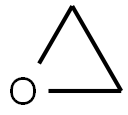1,2-Dibromoethane standard , 2000ug/mlinPurgeandTrapMethanol , 106-93-4
Synonym(s):
EDB;Ethylene dibromide
CAS NO.:106-93-4
Empirical Formula: C2H4Br2
Molecular Weight: 187.86
MDL number: MFCD00000233
EINECS: 203-444-5
PRODUCT Properties
| Melting point: | 9 °C |
| Boiling point: | 131-132 °C(lit.) |
| Density | 2.18 g/mL at 25 °C(lit.) |
| vapor density | ~6.5 (vs air) |
| vapor pressure | 11.7 mm Hg ( 25 °C) |
| refractive index | n |
| Flash point: | 132°C |
| storage temp. | 0-6°C |
| solubility | water: soluble250 part |
| form | Liquid |
| color | Clear colorless to pale yellow |
| Odor | Mild, sweet odor detectable at 10 ppm |
| Odor Threshold | 10 ppm |
| Water Solubility | 4 g/L (20 ºC) |
| Sensitive | Light Sensitive |
| Merck | 14,3796 |
| BRN | 605266 |
| Henry's Law Constant | 7.58(x 10-4 atm?m3/mol) at 25 °C (static headspace-GC, Welke et al., 1998) |
| Exposure limits | NIOSH REL: TWA 0.045 ppm, 15-min C 0.13 ppm, IDLH 100 ppm;
OSHA PEL: TWA 20 ppm, C 30 ppm, 5-min peak 50 ppm;ACGIH TLV: suspected human
carcinogen. |
| Dielectric constant | 4.75 |
| Stability: | Stable, but may be light sensitive. Incompatible with strong oxidizing agents, magnesium, alkali metals. |
| CAS DataBase Reference | 106-93-4(CAS DataBase Reference) |
| IARC | 2A (Vol. 15, Sup 7, 71) 1999 |
| NIST Chemistry Reference | Ethane, 1,2-dibromo-(106-93-4) |
| EPA Substance Registry System | Ethylene dibromide (106-93-4) |
Description and Uses
Ethylene dibromide is a colorless nonflammable liquid or solid (below 10℃) with a sweet, chloroformlike odor. The minimum concentration detectable by odor is10 ppm. Molecular weight = 187.88; Specific gravity(H2O:1) = 2.17; Boiling point = 131℃; Freezing/Meltingpoint = 10℃; Relative vapor density (air = 1) = 6.5; Vaporpressure = 12 mmHg. Soluble in water
1,2-Dibromoethane (EDB) is used as a fumigant for grains, in antiknock gasolines, as asolvent, and in organic synthesis. Most of the uses of 1,2-dibromoethane have been stopped in the United States; however, it is still used as a fumigant for treatment of logs for termites and beetles, for the control of moths and beehives, and as a preparation for dyes and waxes.
Safety
| Symbol(GHS) |    GHS06,GHS08,GHS09 |
| Signal word | Danger |
| Hazard statements | H301+H311+H331-H315-H319-H335-H350-H411 |
| Precautionary statements | P273-P280-P301+P310-P302+P352+P312-P304+P340+P311-P305+P351+P338 |
| Hazard Codes | T,N,F |
| Risk Statements | 45-23/24/25-36/37/38-51/53-34-39/23/24/25-11 |
| Safety Statements | 53-45-61-36/37/39-26-36/37-16-7 |
| OEB | E |
| OEL | TWA: 0.045 ppm, Ceiling: 0.13 ppm [15-minute] |
| RIDADR | UN 1605 6.1/PG 1 |
| WGK Germany | 3 |
| RTECS | KH9275000 |
| F | 8 |
| Autoignition Temperature | 490°C |
| TSCA | Yes |
| HazardClass | 6.1 |
| PackingGroup | I |
| HS Code | 29337100 |
| Hazardous Substances Data | 106-93-4(Hazardous Substances Data) |
| Toxicity | LD50 i.p. in mice: 220 mg/kg (Fischer) |
| IDLA | 46 ppm (354 mg/m3) |



